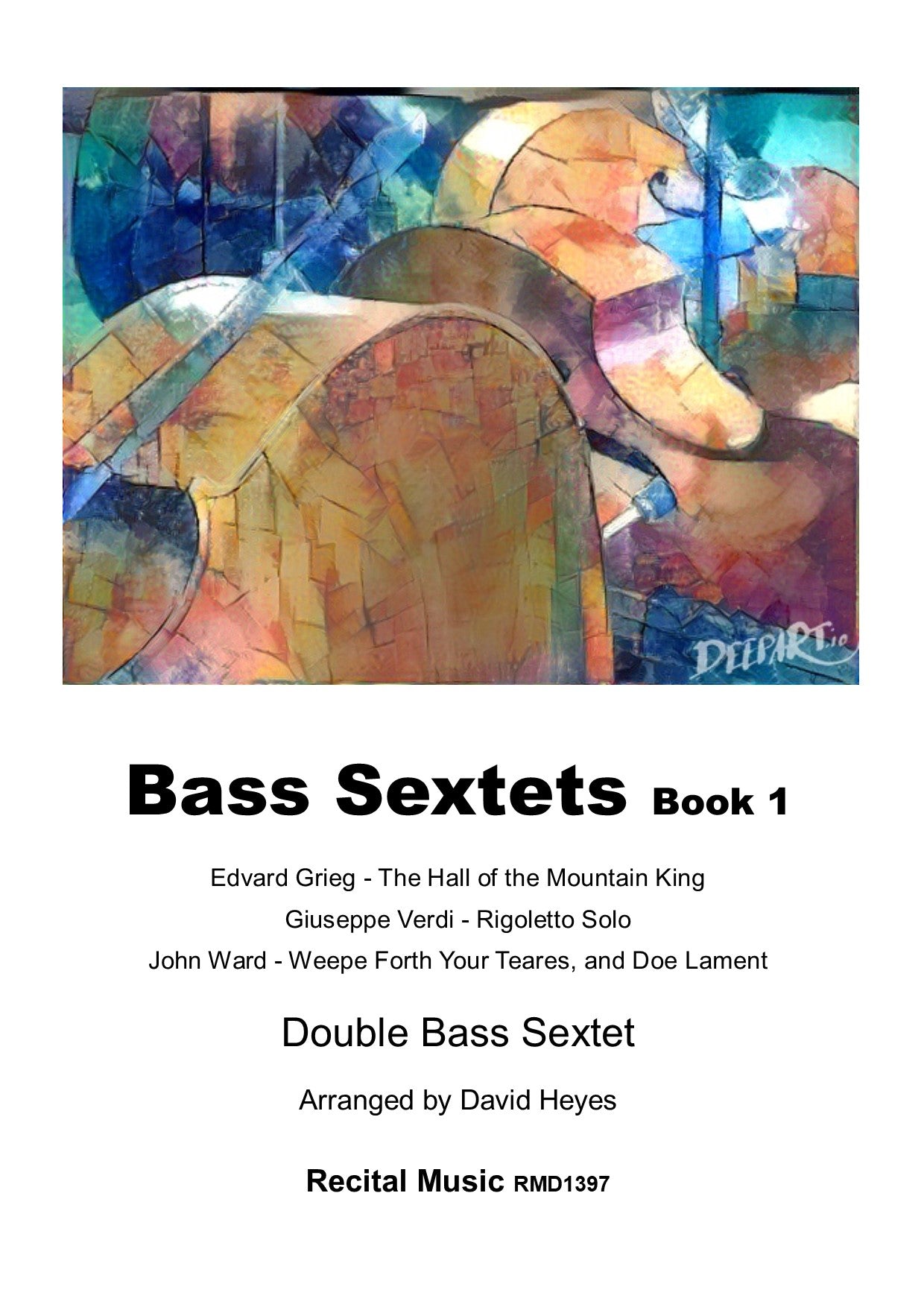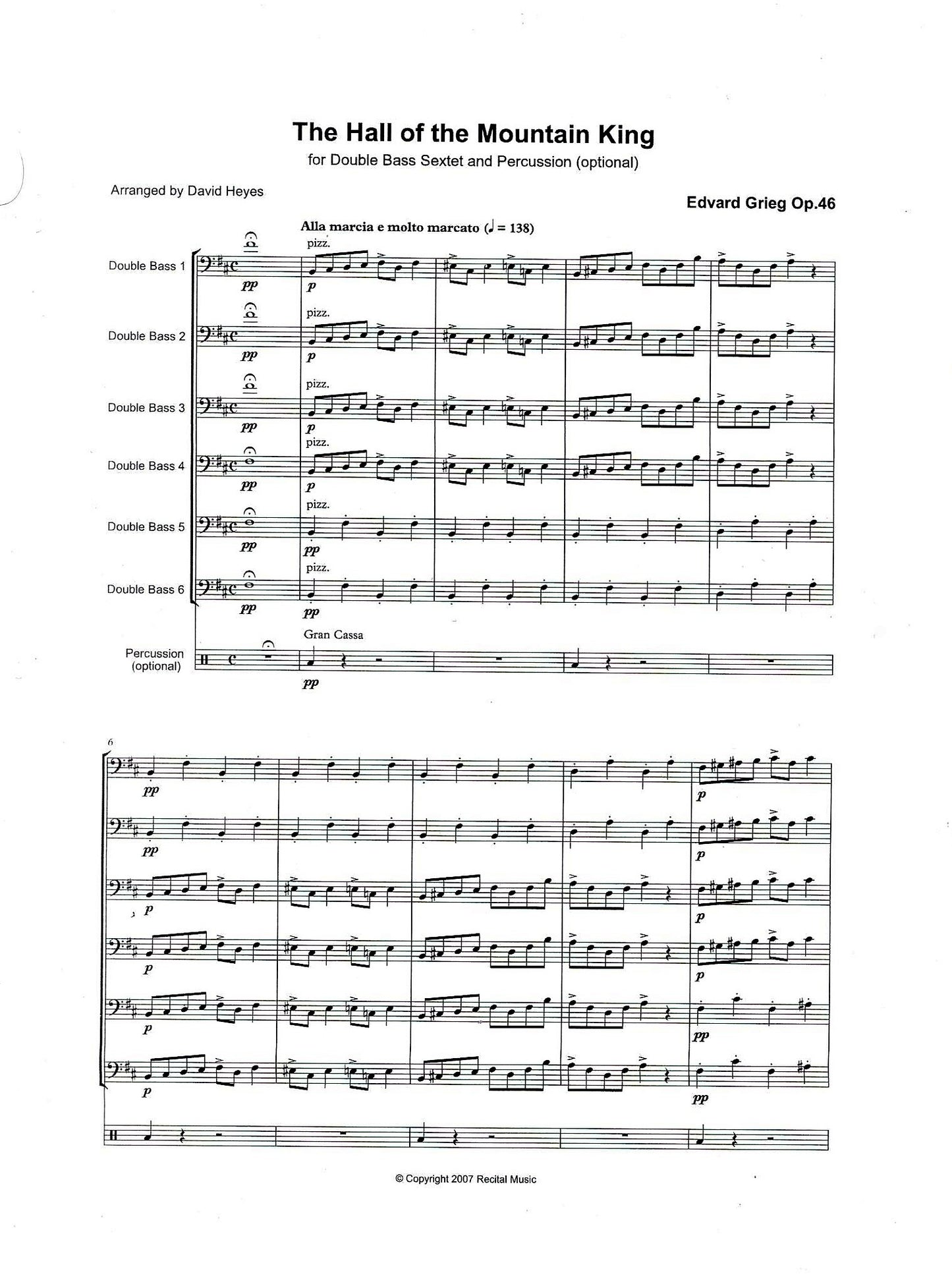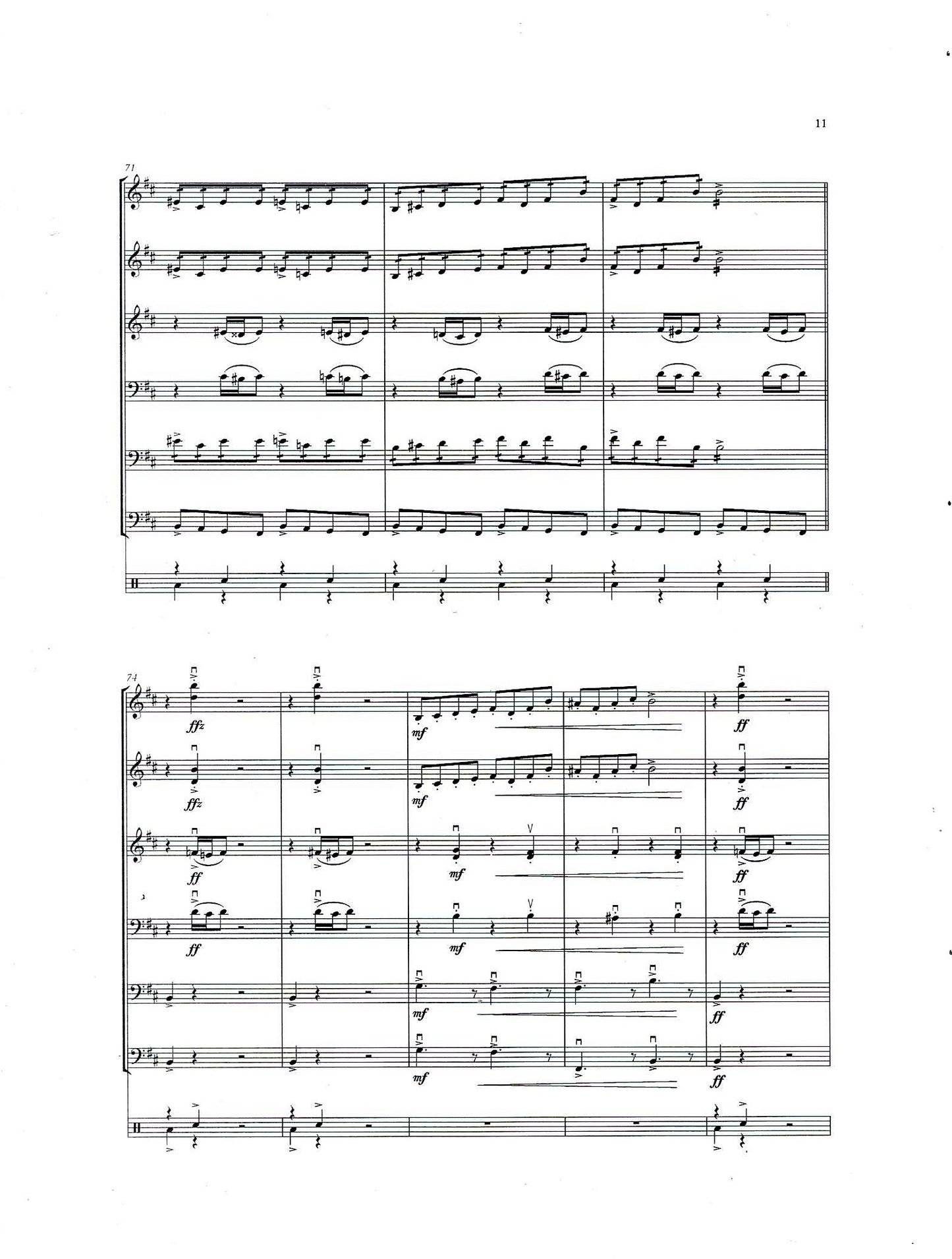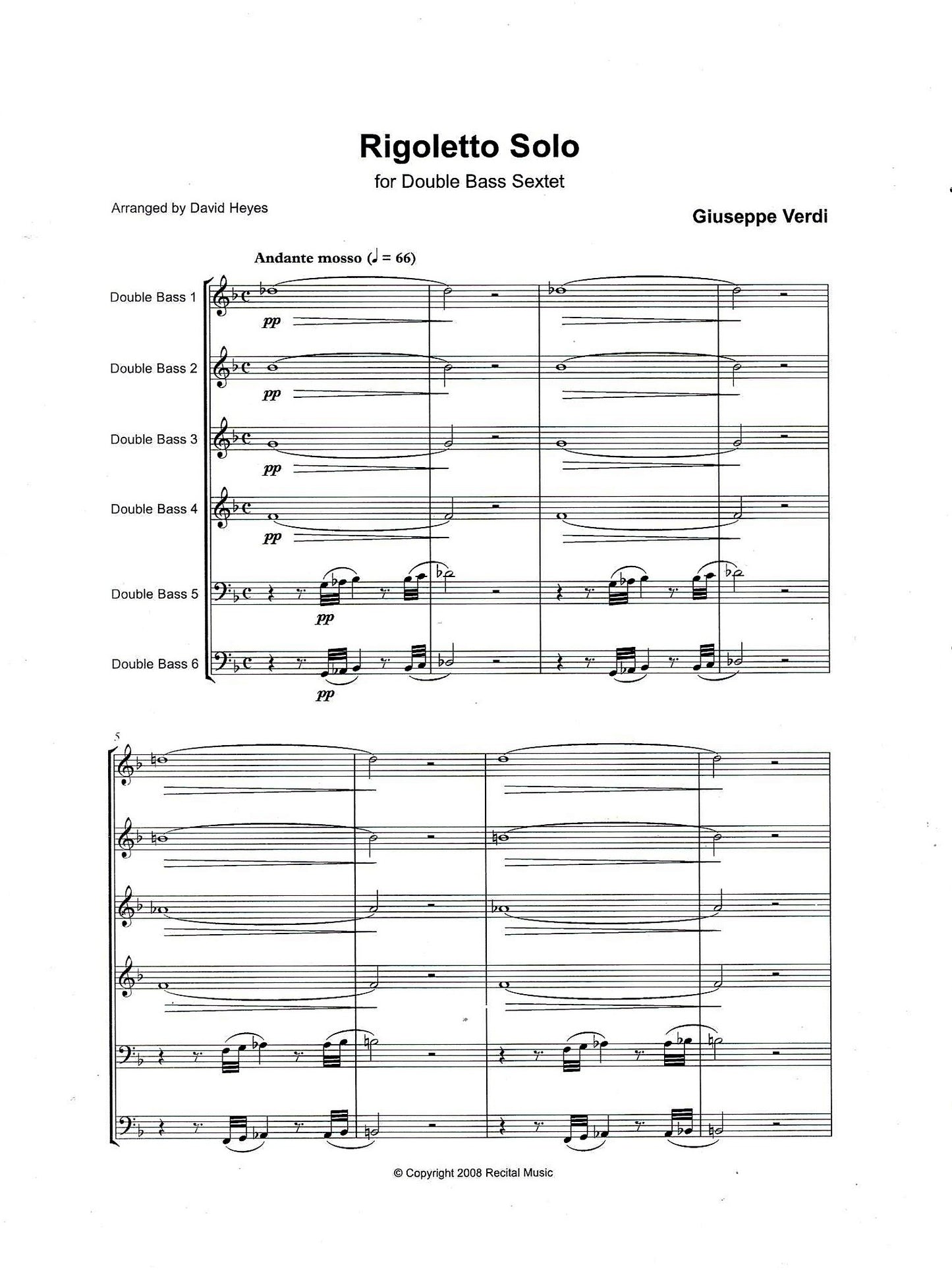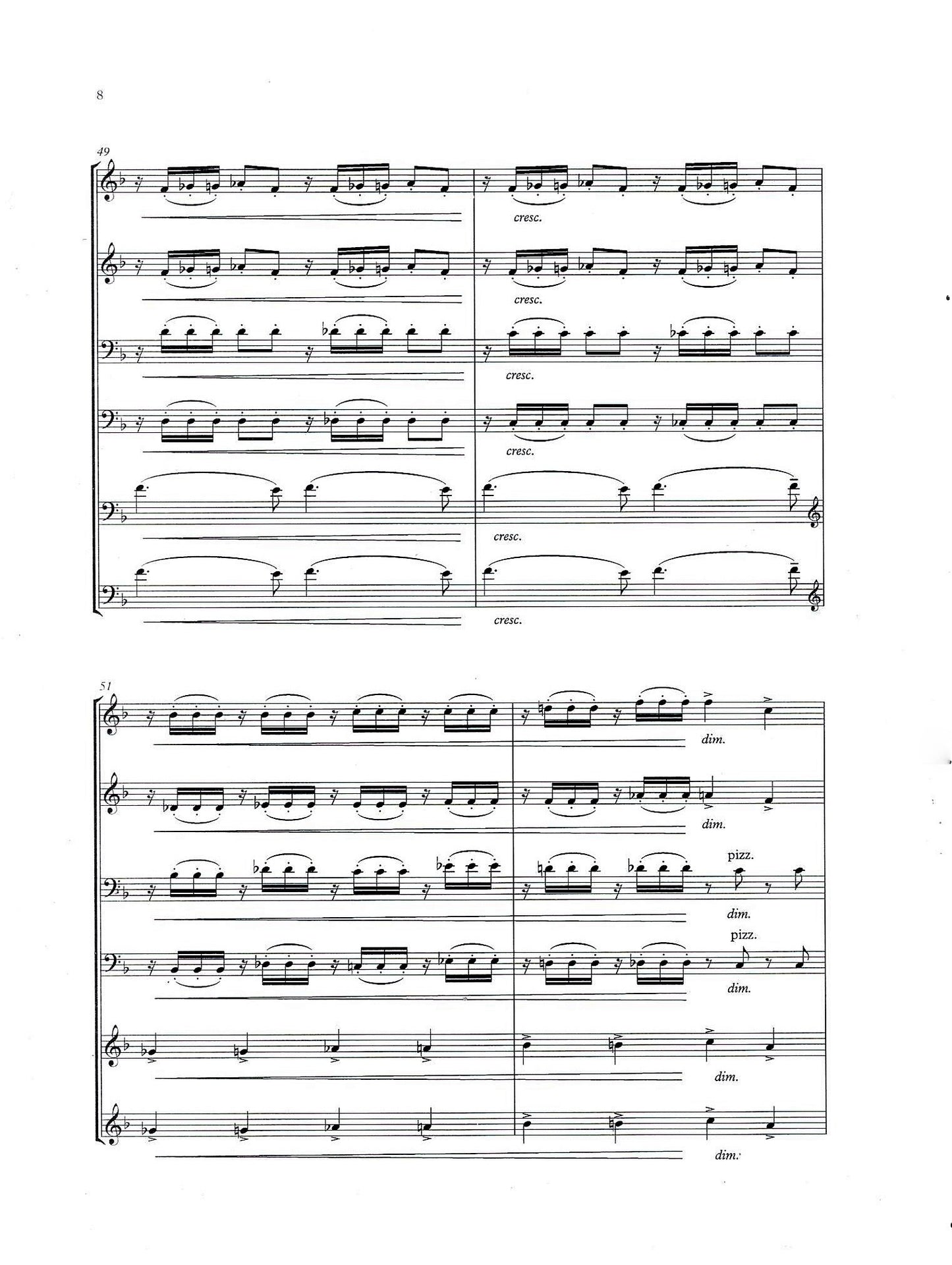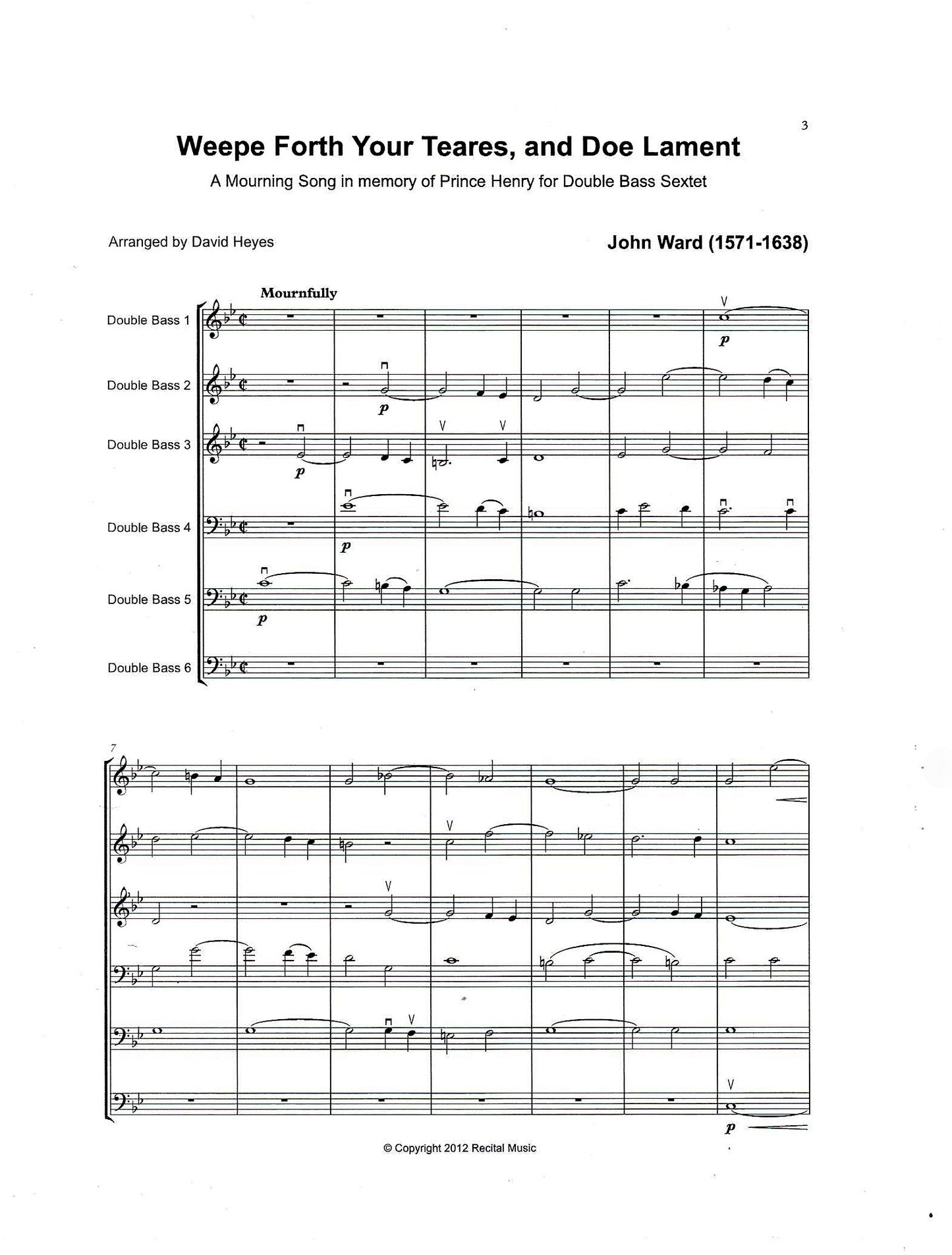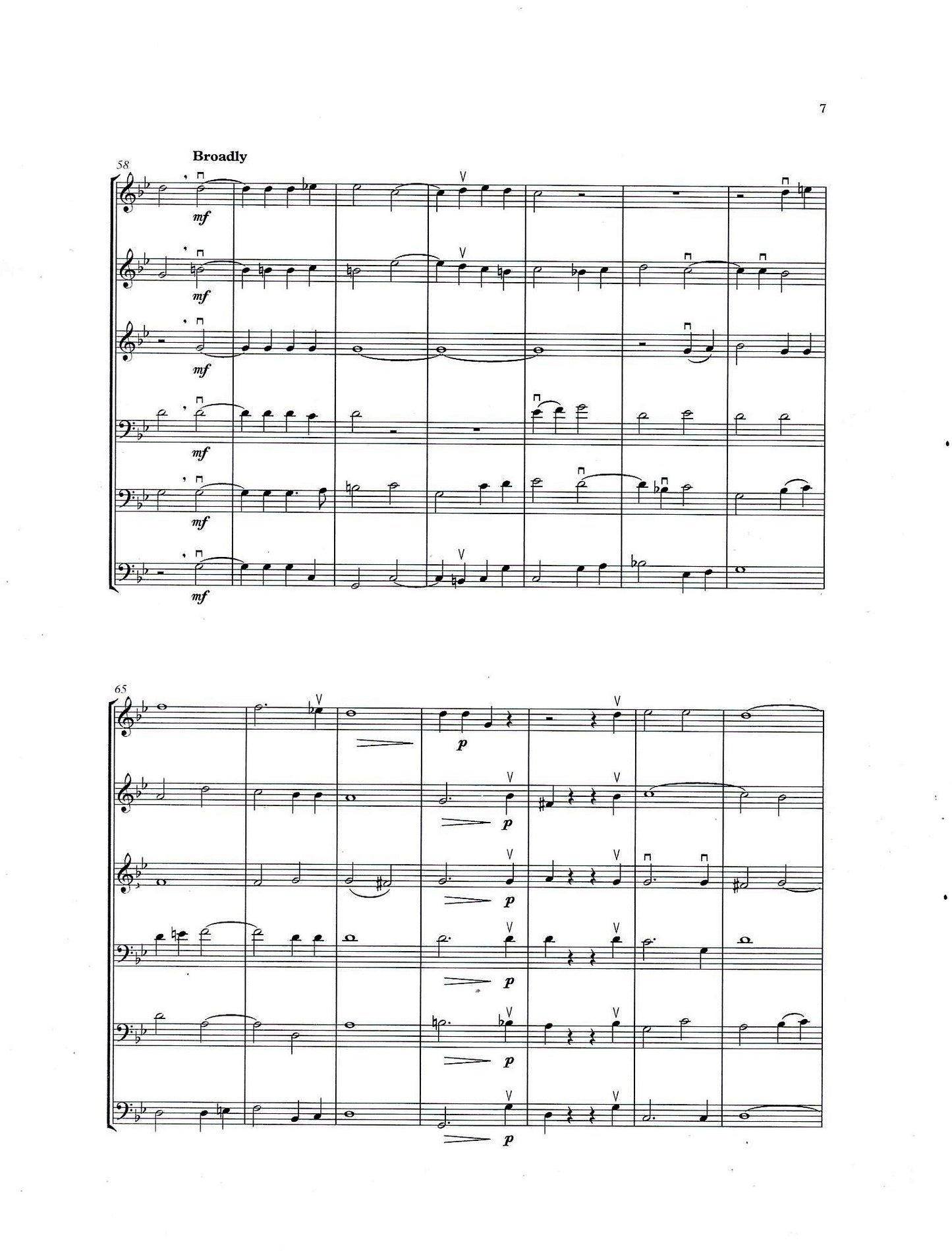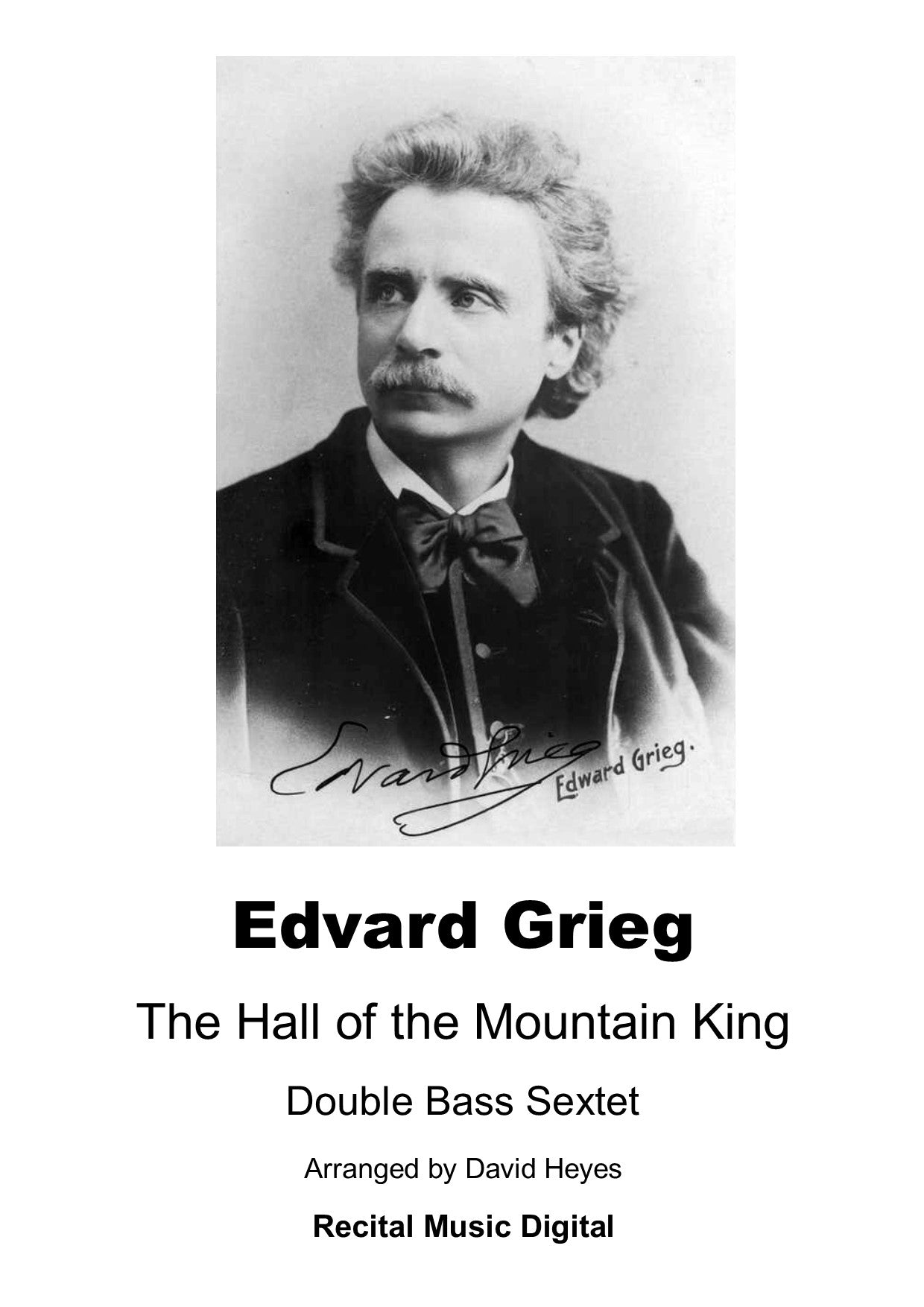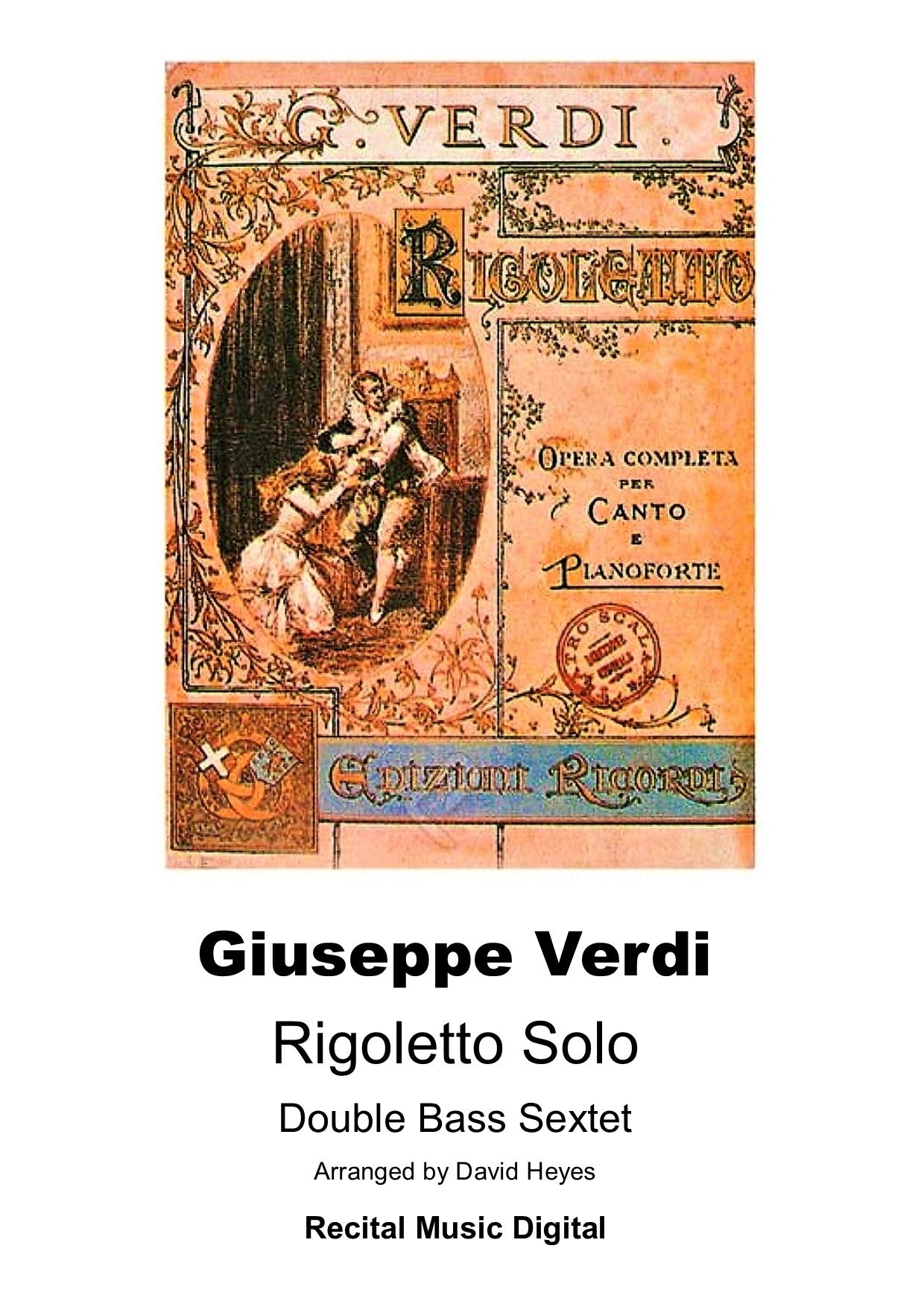David Heyes
Bass Sextets Book 1 for double bass sextet (arr. David Heyes)
Bass Sextets Book 1 for double bass sextet (arr. David Heyes)
Couldn't load pickup availability
About the Book
Bass Sextets Book 1 brings together three inventive and evocative works from the 17th and 19th centuries for the intermediate bass ensemble. Each pieces offers musical and technical challenges in equal measure alongside the opportunity to develop and enhance chamber music skills within different musical styles.
The pieces are playable by sextet or larger forces.
Table of Contents
1. Edvard Grieg - The Hall of the Mountain King
2. Giuseppe Verdi - Rigoletto Solo
3. John Ward - Weepe Forth Your Teares, and Doe Lament
1. Edvard Grieg - The Hall of the Mountain King
Originally composed as incidental music to Ibsen’s play Peer Gynt, and subsequently included in Suite No.1 Op.45, The Hall of the Mountain King is one of Grieg’s most instantly recognisable works. The piece begins simply and quietly, gradually building to a magnificent and monumental climax, and a strong sense of pace and atmosphere is needed for a successful performance.
The Hall of the Mountain King can be performed by double bass sextet or larger forces with optional percussion. It was arranged for an octet concert at the St. Claud Festival (Charente, France) in July 2007, and to commemorate the 100th anniversary of Grieg’s death in 1907.
Edvard Grieg
Was born in Bergen, Norway on 15 June 1843 and died there on 4 September 1907. He studied at the Leipzig Conservatoire with E.F. Wenzel, immersing himself in the early Romantic style and repertoire, before finding his own nationalistic voice in his native Norway some years later.
He was a prolific composer, particularly of piano music and songs, but is probably best known for the Holberg Suite (1884-5) for string orchestra, Piano Concerto in A minor (1868) and the incidental music for Ibsen’s Peer Gynt, subsequently arranged into two popular and much recorded orchestral suites.
Grieg was instrumental in founding a Norwegian Academy of Music, supporting and promoting music of young composers, and toured nationally and internationally as a conductor and pianist for many years, usually performing his own works. Much of his music is folk-inspired, particularly the vocal and piano music, and he was a lyrical composer with an impressionistic harmonic originality, having a significant influence on his contemporaries.
2. Giuseppe Verdi - Rigoletto Solo
The world of opera has long inspired composers and players to plunder the best arias and melodies to transcribe for other instruments and the double bass is no exception. It's difficult to keep a good tune down!
This famous cello and bass solo from Verdi’s Rigoletto (1851) is playable by double bass sextet or larger forces. The melodic material is shared between basses 3-6 and this is an ideal way to study this evocative aria in a bass ensemble setting. The music is dark, sinister and dramatic, always effective and atmospheric, and offers many musical and technical challenges for the good intermediate ensemble.
Useful as both study and concert repertoire and for any youth orchestra or college bass section looking something which offers effective musical challenges but is also great to play.
Giuseppe Verdi
(1813-1901) was the leading Italian composer of the second half of the 19th-century and his operas are still at the heart of the international repertoire into the 21st-century.
3. John Ward - Weepe Forth Your Teares, and Doe Lament
John Ward's Mourning Song was one of a number of laments composed for the funeral in 1612 of the young Prince of Wales, son of King James I. It was performed by the men and children of the King's chapel accompanied by various instruments and was published in 1613. The title page suggests that the piece is "...apt both for Viols and Voyces..."
The lament transcribes well for double bass sextet and the slow chordal writing suits the generally low tessitura of the ensemble. A wealth of colours and timbres can be created by the subtle use of vibrato and non-vibrato and entries should be carefully shaped to draw attention from player to player. Dynamics and articulations are at the discretion of the bassists.
Henry Frederick Stuart, Prince of Wales (19 February 1594 – 6 November 1612) was the elder son of King James I & VI and Anne of Denmark. His name derives from his grandfathers: Henry Stuart, Lord Darnley and Frederick II of Denmark. Prince Henry was widely seen as a bright and promising heir to his father's thrones. However, at the age of 18, he predeceased his father when he died of typhoid fever. The heirship to the English and Scottish thrones passed to his younger brother Charles.
Prince Henry's death was widely regarded as a tragedy for the nation. According to Charles Carlton, "Few heirs to the English throne have been as widely and deeply mourned as Prince Henry." His body lay in state at St. James's Palace for four weeks. On 7 December, over a thousand people walked in the mile-long cortege to Westminster Abbey to hear the two-hour sermon delivered by the Archbishop of Canterbury. As Henry's body was lowered into the ground, his chief servants broke their staves of office at the grave.
John Ward
English composer (1571–1638) was a contemporary of John Dowland. Born in Canterbury, he was a chorister at Canterbury Cathedral and went to London where he served Sir Henry Fanshawe both as an attorney in the Exchequer and as a musician. Ward married and had three children, moved to Essex by 1636, and died at Ilford Magna in 1638.
John Ward composed madrigals, works for viol consort, services, and anthems. His madrigals are remarkable for their fine texts, broad melodic lines and originality.
